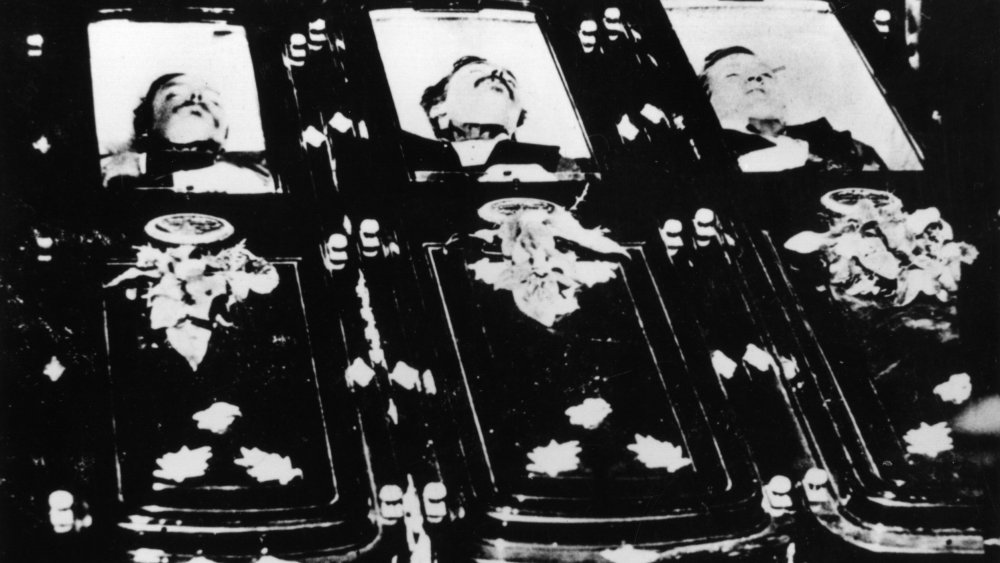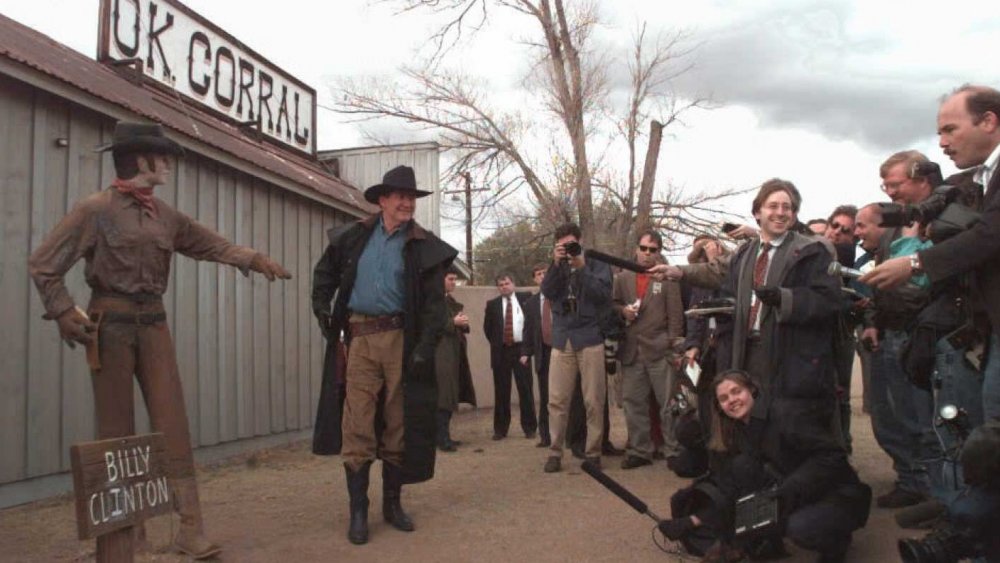The Truth About Wyatt Earp's Death
Thanks in no small part to his enduring pop culture value and the way that cowboy guns look super cool, Wyatt Earp's legacy as a lawman and stone-cold, pistol-whipping, American badass continues to live on nearly a century after his death.
But a life cannot be fully described only through anecdotes on the achievements racked up over one's career, no matter how illustrious. A story isn't a story without a final chapter. If a person's existence is a sentence, could it not be said that it would be incomplete without a punctuation mark at the end? How did the life of the gambler, gunfighter, and legend in his own time, Wyatt Earp, come to a close?
Wyatt Earp: Frontier Lawman (among other things)
Chronic cystitis, according to History. Or, for the layman, a nasty UTI. But let's not get ahead of ourselves.
Wyatt Earp was born March 19th, 1848 in Monmouth, Illinois, a city which today is mostly known for being in the same state as Chicago, and relocated with his family a year later to Pella, Iowa, a town not famous for being in the same state as anything. At 13, he reportedly tried on multiple occasions to run away from home and enlist in the Union Army, with his father always pulling an Uncle Owen by finding him and putting him back to work on the family farm.
Wyatt would spend the majority of his adult life on the move, going from town to town across the United States working in a variety of fields, including hauling freight and grading rail for the Union Pacific Railroad. His first recorded job in law enforcement came when his father resigned as the constable of Lamar, Missouri and Wyatt was appointed as his replacement.
Contrary to the image portrayed in popular culture, Wyatt wasn't always a force for law and order. After the death of his wife in 1870, he was accused of failing to turn in funds collected for the local school board, then arrested on charges of horse theft. Instead of standing trial, he climbed through the open roof of his jail cell and booked it for Peoria. You know, like heroes do.
Frankly speaking, Earp's life was intensely multifaceted, and it would take hours to get into the full details of his work as a lawman, brothel enforcer, silver miner, card dealer, and, in 1877, recipient of a $1 fine for slapping a "tough woman." Today, he's best known for his involvement in the Gunfight at the O.K. Corral and the ensuing violence that was part gang war, part vendetta ride. The shootout and the events surrounding it are still remembered to this day; an egregiously oversimplified remembrance of good versus evil, right versus wrong, and a grim reminder that Kevin Costner had a really difficult time making a good movie there for a while.
The legacy of Wyatt Earp
Wyatt was the last participant of the Gunfight at the O.K. Corral still standing when he finally passed away in 1929. At 80 years old, he had a good run, especially considering how much of his life was spent with bullets flying around his person, and had survived what was arguably a more dangerous situation than any shootout: his involvement in a professional sports scandal. In 1896, Earp refereed a boxing championship between two of the preeminent fighters in the world, Bob Fitzsimmons and Tom Sharkey. Earp called the fight for Sharkey after announcing a blow below the belt that nobody in the audience seemed to witness. In the ensuing court cases, a conspiracy to rig the fight was revealed, and Earp became synonymous across the United States with corruption. He held onto his reputation as a crooked referee long after his death.
Helped in large part by the publication of an aggrandizing biography and the birth of Western feature films, Earp started to redefine himself as old west royalty. Even with all of this, when he passed away from a urinary tract infection in 1929, he was still considered by many to be less of a frontier hero and more of a punk who fudged a lot of peoples' Wednesday night when he messed up the bets they had on whatever the 19th century equivalent of Pay Per View was.
In the end, what can be learned from the life and death of Wyatt Earp? Perhaps, as is almost always the case when the scope of a man's actions are examined piece by piece, the concept of binary good and bad falls limp. Maybe human existence, in the short period allotted us, is a swirling vortex of ever shifting decisions, and drawing up a ledger sheet of morality does nothing but fetishize moments in time without context, blurring truths and monumentalizing complex characters as cartoon demigods that they never really were.
Or maybe, just maybe, the lesson here is to encourage your grandparents to see their urologists, since UTIs are astonishingly common during old age.


